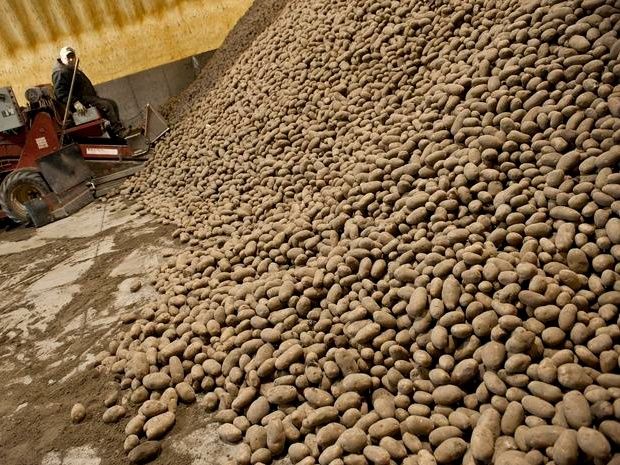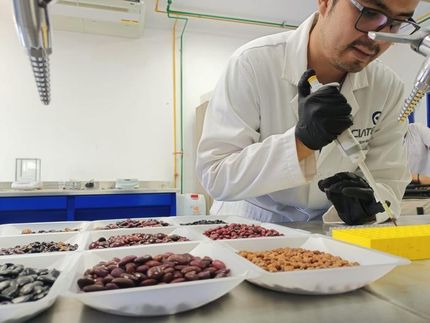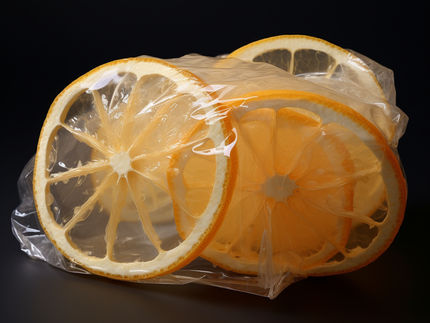Oregon State researchers receive $2M to look for new ways to prevent organic potatoes from spoiling
Advertisement
Oregon State University researchers have been awarded $2 million from the U.S. Department of agriculture to develop improved ways of preventing stored potatoes from sprouting, particularly in the organic sector.

Refugio Sanchez scoops potatoes at the head of a conveyor system that delivers tons of potatoes to waiting trucks at the Amstad storage facility in Hermiston, Oregon. Photo by Lynn Ketchum.
Lynn Ketchum, OSU
This research is pivotal given the rapid rise of the organic market in U.S. agriculture, the scientists note.
“The organic potato industry cannot depend on traditional chemical anti-sprouting treatments since synthetic chemicals are banned in certified organic,” said Valtcho Jeliazkov of OSU’s College of Agricultural Sciences.
As of 2022, U.S. organic food sales surpassed the $60 billion mark for the first time, the scientists note. Oregon, Washington and Idaho combine to produce more than 60% of the potatoes grown in the United States, and Pacific Northwest potato cultivation is a $2.2 billion industry, the researchers said.
As the organic market continues to grow, the financial implications of spoilage and reduced storage life become even more significant, said Jeliazkov, an associate professor in OSU’s Department of Crop and Soil Science.
Sprouting diminishes marketable qualities such as appearance, taste and texture, and decreased storage life translates to financial setbacks, he said.
Historically, to mitigate the challenge of sprouting, chemical treatments have been applied, predominantly chlorpropham, or CIPC. CIPC is cost effective but has come under scrutiny as a potential health and environmental hazard, leading to its recent ban in the European Union, said Jeliazkov,
As a result, natural products have been used to combat sprouting in organic potato storage. But current alternatives lack the efficiency of CIPC and thus require frequent applications, which makes them much more expensive, Jeliazkov said.
He added that his lab is dedicated to innovating new products and technologies to manage potato sprouting in organic systems and has already studied around 200 different plant essential oils for their anti-sprouting effects.
Working with Jeliazkov on the anti-sprouting project is Kyriakos Stylianou, assistant professor of chemistry in the OSU College of Science.
“We aim to find strategies to control the gradual release of these oils, thus prolonging the inhibitory effects on sprouting,” Stylianou said. “The polymers will be shaped as hollow beads capable of retaining essential oils and prepared as microemulsions in Adam Alani’s College of Pharmacy lab. Our team will experimentally optimize several conditions to tune the size of these beads, and we will spray lots of potatoes and investigate the impact on sprouting.”
Robyn Tanguay, university distinguished professor of environmental and molecular toxicology in the College of Agricultural Sciences, and associate professor Lisa Truong will lead toxicity experiments to determine the safety of the potato treatments.
Neal Stewart of the University of Tennessee will direct the work of examining potato tuber chemistry and hormonal balance after the treatments are applied.
Funding for the work is through the USDA’s National Institute of Food and Agriculture via the Organic Agricultural Research and Extension Initiative.




























































